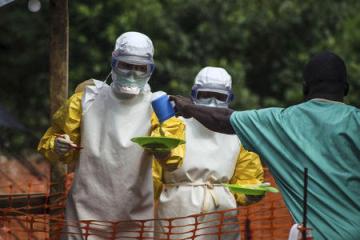Sudan to monitor arrivals from West Africa for Ebola
August 10, 2014 (KHARTOUM) – The Sudanese minister of health, Bahar Idriss Abu-Garda, announced that the government has elevated the state of alert to prevent infiltration of the Ebola virus through visitors from other countries.

He disclosed that medical committees have been placed at the borders and added that they have initiated an awareness campaign with the distribution of educational brochures for the training of health personnel.
“Precautionary measures and arrangements were undertaken at Khartoum airport, especially for those arriving from countries that has the disease, in addition to the processing of quarantine rooms for receiving [Ebola] cases using protective clothing,” Abu-Garda said.
According to Reuters, Ebola is one of the deadliest diseases to man as it kills up to 90% of those infected. Discovered nearly 40 years ago deep in the forests of central Africa, its symptoms include internal and external bleeding, diarrhea and vomiting.
The virus is endemic to Democratic Republic of Congo, Uganda, South Sudan and Gabon, and scientists initially believed that Central Africa’s Zaire strain of the virus was responsible for the outbreak.
The World Health Organization (WHO) has said that the world’s worst outbreak of Ebola in West African nations — with 1,779 cases and 962 deaths — will likely continue for months as the region’s healthcare systems struggle to cope. It has appealed urgently for funding and emergency medical staff.
There is no vaccine or cure for Ebola but some countries said they are using experimental drugs to treat infected patients.
SUDAN DENIES HEALTH FEARS
The Sudanese official denied rumours about the emergence of health epidemic due to recent floods and rains that swept the country and caused the deaths of at least 39 people and the destruction of about 6,000 homes.
Health experts have warned of catastrophe as a result of flies, mosquitoes and insects and the collapse of a large number of toilets due to torrential rain.
Dozens of houses were destroyed and public transport lines were partially disrupted in Khartoum due to heavy rains on Saturday night that lasted for about five hours.
(ST)
